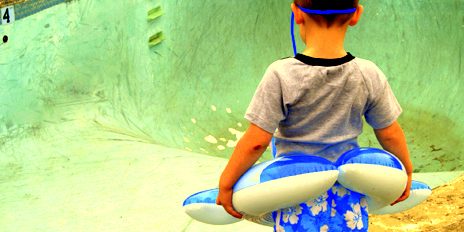Your pool will naturally lose some water to evaporation, some to splash out and some to backwash waste-water. You may also gain water from rainfall. Our rule of thumb is, if you’ve lost more than 1/4-inch during a 24 hour period, you’ll need to perform a pool leak detection procedure.
Common Signs your Pool or Spa may be Leaking:
- Air in the pool system
- Pool equipment keeps losing prime
- Cracks can be seen from the waters edge
- The pool deck is either sinking or rising
- Soggy areas around your pool
- Adding water to your pool more than once a week
A small crack can turn into a major repair if left untreated.
If you’re experiencing any of the problems above, Call NOW (305) 520-9140 or (561) 542-0686
What Else I Need to Know
Pools are meant to be watertight, but sealants will deteriorate while other parts of your pool shift and settle, or just plain wear out.
Pools can leak through any of the fittings or accessories, plumbing, or even right through the shell.
A small leak may not seem like a big deal, but it can have a substantial effect on your water bill.
It is important to repair leaks, not only to save water, heat and chemicals, but also to prevent undermining pool structural components.
Excessive water, resulting from a pool leak can disturb the soil below the pool deck and as a result the pool deck can collapse. This soil movement, due to the water saturation, may affect the structure of the buildings surround the pool deck.
We are glad to serve our community!
Check our services here or contact us.
More from Certified Pool Leak Inspection:
- Strengthening Family Ties In The Age of Technology With a Beautiful Backyard Pool (Among Other Benefits)
- Most Common Types of Pool Repairs In South Florida
- What Causes Pool Leaks In South Florida?
- Getting a Leak Detection vs. Getting a Pool Inspection
- Pool Leak Professionals: Keep Developing your Professional Skills





